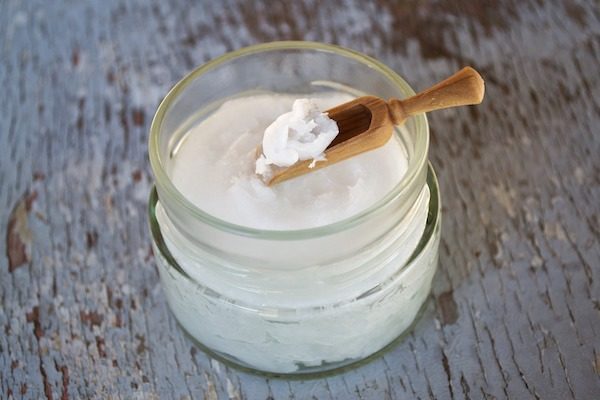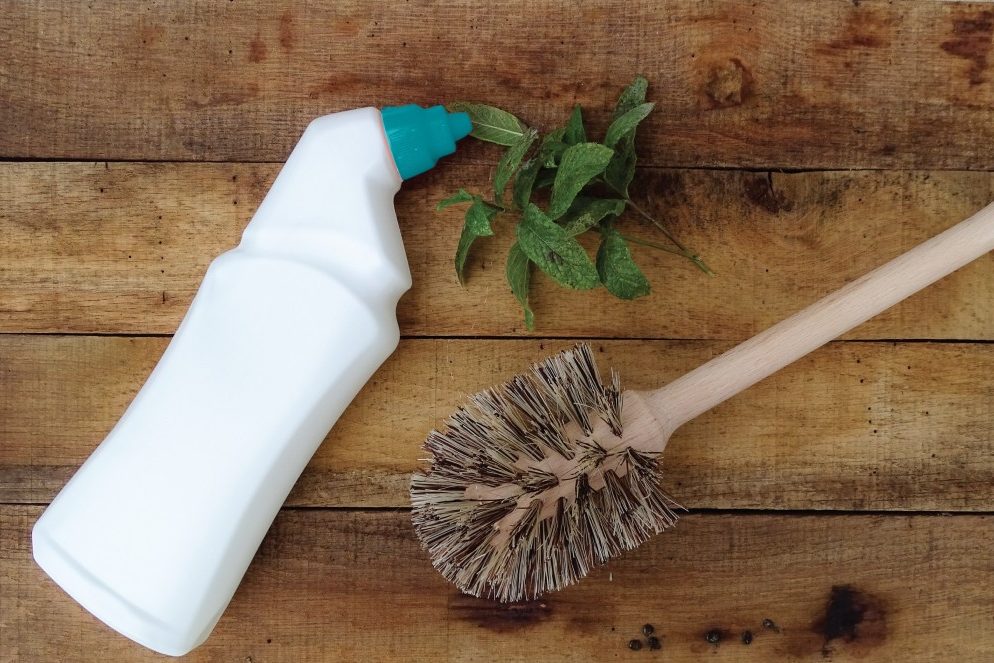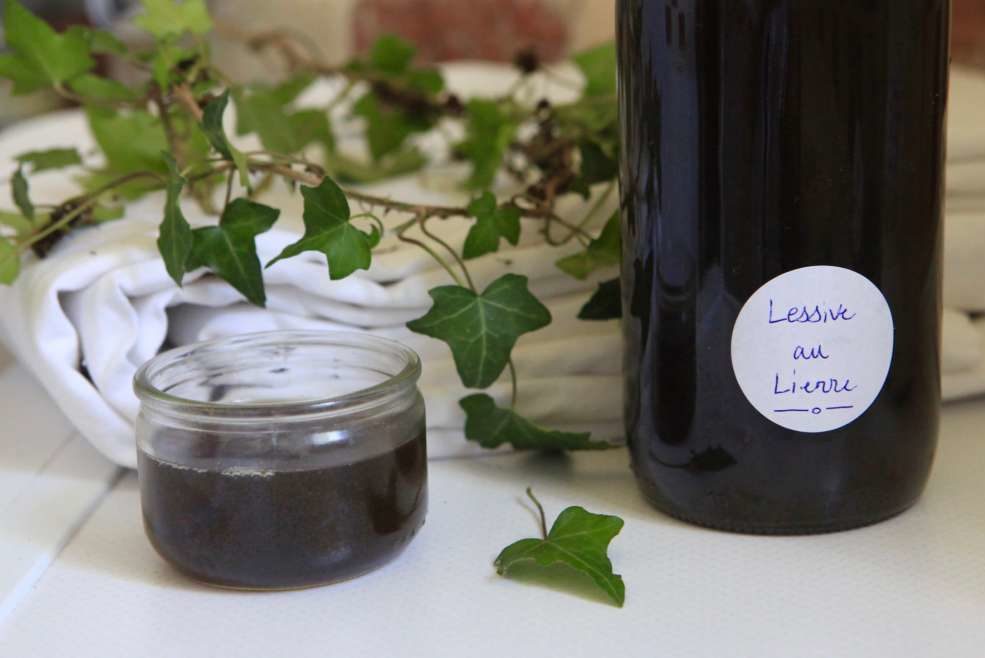Be aware that industrial deodorants contain endocrine disruptors, aluminium salts, gas and solvents. In short, they are harmful to health and the environment.
No need to extend the list to convince me and switch to homemade deodorant, 100% natural, zero waste, ecological, cheaper and feasible in less than 10 minutes!
Ingredients
- 2 tablespoons of fine baking soda (neutralizes odours)
- 2 tablespoons of coconut oil (antibacterial properties)
- 2 tablespoons cornstarch (absorbs moisture)
Utensils
- a small pot
- a small jar with lid
- a tablespoon
- a label
Preparation
- In a small pot, melt the coconut oil over a very low heat (In summer, this step is useless knowing that the coconut oil will be liquid at room temperature).
- Off the heat, add the bicarbonate and mix. Add the starch and stir.
- Pour into the small jar, close, label and put in the freezer for a few hours.
- Then keep at room temperature (or in the fridge in the summer).
Use
Take a small amount of the mixture from the jar and spread it under your armpit (if necessary, close the armpit to soften and melt into the skin).
This homemade deodorant will have a slight coconut smell. If you prefer, it is possible to add a few drops of essential oil (palmarosa, lavender…) during the preparation. If the deodorant is too solid to be spread easily, you can melt it over low heat and add a little bit of vegetable oil. Refreeze it and then keep it at room temperature.
Good to know!
Unlike industrial antiperspirant deodorants whose aluminium salts are used to block the pores of the armpits (and thus prevent sweating), a 100% natural solid deodorant does not prevent perspiration but simply stops the proliferation of bacteria responsible for bad odours. You may therefore have a more important “wet” effect than with a common deodorant but this is completely normal and much more n-a-tu-r-a-l! Perspiration is a physiological phenomenon essential to the body. It has indeed
- a thermoregulation function: it plays an important role in the regulation of our body temperature.
- an elimination function: it allows the elimination of toxins and waste products from our metabolism.
- a protective function: it forms a hydrolipidic film that hydrates our skin and ensures an immunological role.
NB: For people with sensitive skin, we are currently testing a new recipe without bicarbonate. I will keep you posted 😉


